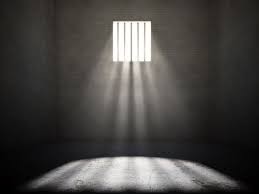Pretrial detention should not and must not be a death sentence.
That simple rule of justice seems obvious enough. But we risk violating it everyday in the Shelby County Jail, where too many marginalized citizens are pushed too close together, with too many having tested positive for the COVID-19 coronavirus. The current situation at 201 Poplar is a medical ticking time bomb.

Reportedly, almost 200 inmates and staff at 201 Poplar have tested positive for COVID-19 — well over 70 percent of those tested. At least one staff member has died from the virus. And yet, we still act like everything’s under control.
We need to quickly start letting more people out, and putting fewer people in.
The way the jail is set up, detainees must sleep together, eat together, and otherwise live together in close proximity. For many, their bunk is less than six feet away from another person. There is no possibility of “social distancing” for these persons. They are not given a daily supply of face masks. They are not even tested regularly. You can’t manage what you don’t measure.
Medical authorities will tell you this is a recipe for disaster in any jail or prison, even where many haven’t already tested positive for the virus. They will also tell you that people with certain medical conditions are especially at risk for serious health consequences or death if they catch the virus. These kinds of conditions — heart, lung, diabetes, high blood pressure —- are very common among the population of 201 Poplar.
Most of these people are citizens who have not been convicted of any crime. Some are only there only because they cannot afford cash bail, or they may have failed to pay a supervision fee while they were on probation or parole. Many others are charged with nonviolent crimes. And these citizens are overwhelmingly African-American.
As members of the Tennessee Black Caucus of State Legislators (TBCSL), we have long been concerned about the racial injustices baked into our criminal justice system. African Americans are disproportionately arrested, charged with serious crimes, and given long sentences in Tennessee, generally, and Shelby County, in particular. The situation at our Juvenile Court was serious enough to trigger federal oversight.
So it seems with COVID, as well. Like so many societal ills, this plague hits hardest among urban African Americans. And, as many of these detainees are released back into the community, as is the case with a jail, they will return to that urban African-American community. If we do not act to reduce the jail population, and begin to regularly test and adequately treat those who remain, we risk spreading the virus further into an already vulnerable community.
The detainees inside understand this. We were distressed to read reports of certain inmates who had tested positive and who had been segregated from the rest of the jail. When jail officials tried to return them to the general population, these detainees were so eager to be tested to confirm they had recovered, and so reluctant to infect their fellow inmates, that they staged a sit-in, demanding that they be tested before they were returned. For their trouble they were pepper-sprayed.
The TBCSL believes there’s a better way to handle this COVID-19 crisis which plagues the jail. First, medically at-risk detainees should be released immediately, starting with those who are only in jail because they couldn’t afford to pay bail or a fine, or who are detained for some other technical reason. They can be sent to home confinement, with GPS monitoring if necessary. Or they can be sent to a halfway house, treatment center, or other facility where they can maintain social distancing and follow medically recommended practices.
The remaining medically vulnerable persons should similarly be released, unless there is some clear reason to think they present a risk of flight or a danger to the community.
And, once reduced, we should keep the jail population low for the duration of the COVID-19 crisis. This simply means we should stop sending people arrested for misdemeanors and other low-level offenses to the jail. Instead, we can find alternatives to pretrial incarceration, like the alternatives previously cited. Our understanding is that particular law enforcement agencies, have failed to get the message here, and continue to overcharge defendants, resulting in jail detention, instead of issuing tickets or subpoenas.
For those who remain inside, we need to do a better job of managing the mushrooming health crisis. With a reduced jail population, we can separate or segregate people and allow for more social distancing. We can provide detainees with a mask every day and regular testing. People who test positive should be segregated, but with regular medical supervision and proper treatment.
We need to do all these things, and do them quickly, before the situation gets out of control and devastates our jail and wreaks havoc in the communities to which the detainees eventually return. Let’s pray that our local leaders are blessed with the wisdom to understand, and the courage to act. Our constitution requires justice and demands appropriate corrective actions, now.
G.A. Hardaway is the state Representative from the 93rd House District in Memphis and Chairman of the Tennessee Black Caucus of State Legislators.